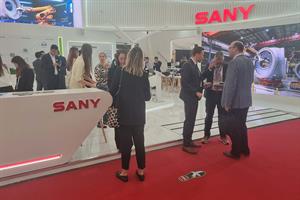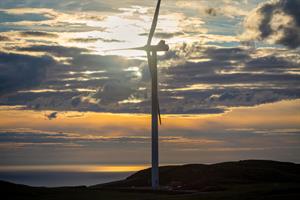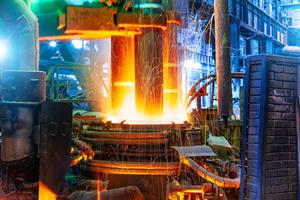
What servicing applications does ZF provide?
At ZF Windpower we provide full lifecycle services for the main drivetrain components. Our offering consists of four product lines: spare parts and consumables, replacement gearboxes, workshop repairs and field services. On top of this we provide additional value added services through digitalisation. This improves the performance and reliability of the four product lines.
All services can be procured on a case-by-case basis or under service agreements. These framework deals can be flexible or full-scope agreements with performance and capacity commitments.
What role does digitalisation play in servicing of gearboxes and will this increase in time?
The main concerns for our customers are to avoid standstills and to reduce the cost of servicing. Digitalisation helps alleviate these concerns in various ways.
Firstly, it increases the availability of the right service solutions by using data from manufactured components alongside performance data of wind turbines. Secondly, it allows for the early notification of failures through dedicated CMS systems that notify the appropriate service solution automatically.
Driven by cost pressure on the O&M side in combination with increased availability of adequate technologies, the application of digital solutions will definitely expand.
How does ZF process all of the data it receives? How much of the data is used? And what happens with this data?
ZF has a lot of data from the manufacture of the gearbox - it’s all contained in a digital birth certificate. This is combined with the data from the performance of the gearboxes life cycle monitor which is gathered from customers and put into a standardised data structure.
ZF invests in automatising all data algorithms, so that the right service actions can be triggered automatically and customers are supported as quickly as possible.
Will there always be the need for technicians to climb the turbines to carry out servicing of gearboxes?
Various developments are being introduced to avoid the need for climbing a tower on inspection, for example CMS systems to detect anomalies.
However, climbing a tower for uptower repairs is typically a more cost efficient way than exchanging gearboxes as the cost of a crane can be avoided. The driver is included by ZF in the development of new gearboxes.
Uptower services is a growing area of wind services. ZF’s approach in uptower has several strategic considerations: firstly design – all our design parameters are considered from the uptower service ability view and this is taken into consideration during the NPI phase of new gear design. Extensive uptower servicing validation is part of this phase. Conceptually, new designs are built as modular designs which allows us to service the gearbox.
Secondly, ZF’s global reach and critical local spare parts inventories enable a quick return to service approach in all wind hotspots. For the field technicians ZF uses both an in-house team and a certified partners network to ensure a fast response and high quality in all regions.
What technologies are being developed to help support servicing that you are excited about? Will thermography or acoustic sensors play more of a role?
Firstly, there are new modular design concepts that allow for full modular uptower exchanges as well built in integrated turbine cranes for more uptower services.
Many interesting evolutions are also happening in the field of digital solutions such as sensors, connectivity, edge computing, which will make wind turbines and their gearboxes more intelligent machines that are aware of their condition. This includes state-of-the art vibration and oil wear debris monitoring. New developments are ongoing in oil quality monitoring, integrating component load monitoring (e.g. in bearings), integrating visual inspections, … but also in the domain of combining sensors with component and system models there are a lot of opportunities.
What’s the value of dedicated service partner? How do you see the role of ZF as a service partner will evolve in the future?
Service partnerships are long term decisions and require significant investments from both parties for sustainable and competitive collaboration. Training and education, as well as joint development initiatives, are constantly required to keep offering competitive and innovative value proposals for the industry.
ZF uses partners in different areas – for example along the supply chain to complete areas where ZF does not have a strategic focus internally or where a partner is better positioned to compliment ZF’s offering. They are also used where quick responses are required – like uptower services. ZF will develop and train companies to have a quick response and a strong local presence to serve the customer base with original OEM spare parts and ZF validated procedures.
How do you see the importance of service evolve in the future?
With more and more turbines reaching the age where they require service, the evolution in this area is increasing and its importance will grow. From short term needs to reduce OPEX costs, the trend will integrate the right service solutions already in the development phase of new wind turbines. Since OPEX has a considerable impact on LCOE, service will – as it has in other industries – become an integrated part of the wind industry.
This article is sponsored by ZF
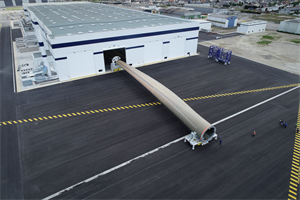
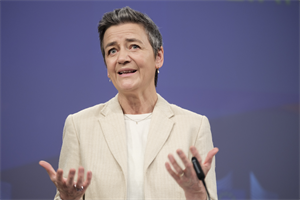
(1).png)
.png)
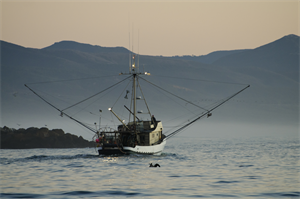
.png)



.jpg)
